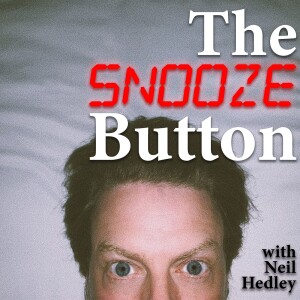
- Podcast Features
-
Monetization
-
Ads Marketplace
Join Ads Marketplace to earn through podcast sponsorships.
-
PodAds
Manage your ads with dynamic ad insertion capability.
-
Apple Podcasts Subscriptions Integration
Monetize with Apple Podcasts Subscriptions via Podbean.
-
Live Streaming
Earn rewards and recurring income from Fan Club membership.
-
Ads Marketplace
- Podbean App
-
Help and Support
-
Help Center
Get the answers and support you need.
-
Podbean Academy
Resources and guides to launch, grow, and monetize podcast.
-
Podbean Blog
Stay updated with the latest podcasting tips and trends.
-
What’s New
Check out our newest and recently released features!
-
Podcasting Smarter
Podcast interviews, best practices, and helpful tips.
-
Help Center
-
Popular Topics
-
How to Start a Podcast
The step-by-step guide to start your own podcast.
-
How to Start a Live Podcast
Create the best live podcast and engage your audience.
-
How to Monetize a Podcast
Tips on making the decision to monetize your podcast.
-
How to Promote Your Podcast
The best ways to get more eyes and ears on your podcast.
-
Podcast Advertising 101
Everything you need to know about podcast advertising.
-
Mobile Podcast Recording Guide
The ultimate guide to recording a podcast on your phone.
-
How to Use Group Recording
Steps to set up and use group recording in the Podbean app.
-
How to Start a Podcast
-
Podcasting
- Podcast Features
-
Monetization
-
Ads Marketplace
Join Ads Marketplace to earn through podcast sponsorships.
-
PodAds
Manage your ads with dynamic ad insertion capability.
-
Apple Podcasts Subscriptions Integration
Monetize with Apple Podcasts Subscriptions via Podbean.
-
Live Streaming
Earn rewards and recurring income from Fan Club membership.
-
Ads Marketplace
- Podbean App
- Advertisers
- Enterprise
- Pricing
-
Resources
-
Help and Support
-
Help Center
Get the answers and support you need.
-
Podbean Academy
Resources and guides to launch, grow, and monetize podcast.
-
Podbean Blog
Stay updated with the latest podcasting tips and trends.
-
What’s New
Check out our newest and recently released features!
-
Podcasting Smarter
Podcast interviews, best practices, and helpful tips.
-
Help Center
-
Popular Topics
-
How to Start a Podcast
The step-by-step guide to start your own podcast.
-
How to Start a Live Podcast
Create the best live podcast and engage your audience.
-
How to Monetize a Podcast
Tips on making the decision to monetize your podcast.
-
How to Promote Your Podcast
The best ways to get more eyes and ears on your podcast.
-
Podcast Advertising 101
Everything you need to know about podcast advertising.
-
Mobile Podcast Recording Guide
The ultimate guide to recording a podcast on your phone.
-
How to Use Group Recording
Steps to set up and use group recording in the Podbean app.
-
How to Start a Podcast
-
Help and Support
- Discover

The nap is a completely foreign concept to our host, Neil Hedley. Because Neil typically takes an hour or so to fall asleep, intentional short-duration sleep has normally been beyond his grasp.
Then, he met Dr. Sara Mednick.
Sara is Professor of Cognitive Neuroscience at the University of California, Irvine and author of the book, Take a Nap! Change your life (affiliate link). She looked at data from a study involving napping habits in nearly 4,000 elementary school children. Subsequently, she and her team found some fascinating patterns.
For example, it turns out that the nap is among the things credited for improvements in cognition, psychological wellness - including what Sara and her team referred to as "grit" - and reduced emotional and behavioral problems.
We've talked before about sleep duration, like in two episodes with Dr. Adrian Owen OBE, but we've never gotten into detail on a quick siesta.
As a result, that detail shows up here. We talk about everything from how sleep hygiene applies to a short snooze, to the idea of a coffee nap.
We're wired to nap, Sara says. Or at least some of us are. Daylight doesn't have the same impact on the crowd that's predisposed for grabbing some quick shut-eye, for example. Furthermore, some people actually get better sleep at night when their day includes a nap. Especially when it happens as far removed as possible from their nighttime sleep.
Sara told us, "a twenty-minute nap at any time of the day is really not going to interfere with your sleep." Moreover, she says if you do it earlier in the day, and for a little bit longer, even an hour and a half, "we haven't shown any differences in nighttime sleep."
LinkapaloozaYou've got to see Sara's website. (Be sure to check out the Nap Wheel!)
This podcast uses the following third-party services for analysis:
Chartable - https://chartable.com/privacy
More Episodes
 2020-04-07
2020-04-07
 2020-03-30
2020-03-30
 2020-03-23
2020-03-23
 2020-03-07
2020-03-07
 2020-03-02
2020-03-02
 2020-02-17
2020-02-17
 2020-02-10
2020-02-10
 2020-02-03
2020-02-03
 2020-01-31
2020-01-31
 2020-01-20
2020-01-20
 2019-12-16
2019-12-16
 2019-12-09
2019-12-09
 2019-12-02
2019-12-02
 2019-11-25
2019-11-25
 2019-11-11
2019-11-11
 2019-11-04
2019-11-04
 2019-10-28
2019-10-28
 2019-10-27
2019-10-27
Create your
podcast in
minutes
- Full-featured podcast site
- Unlimited storage and bandwidth
- Comprehensive podcast stats
- Distribute to Apple Podcasts, Spotify, and more
- Make money with your podcast
It is Free
- Privacy Policy
- Cookie Policy
- Terms of Use
- Consent Preferences
- Copyright © 2015-2025 Podbean.com




